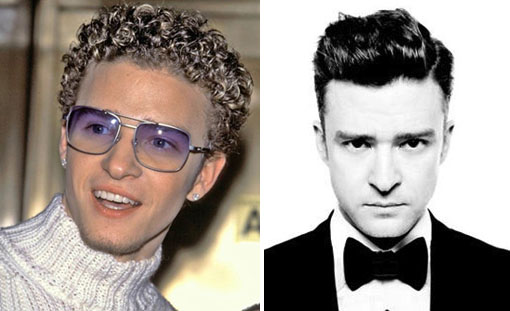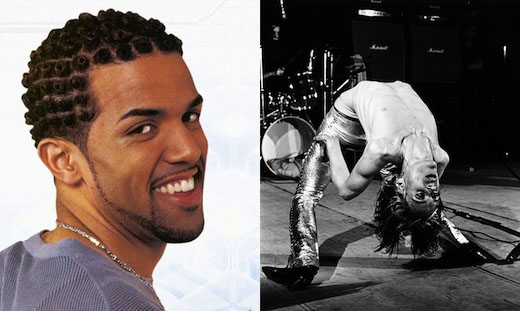Have We Finally Gotten Over Authenticity In Music?
As the major label system continues its doom-spiral, and words like ‘indie’ lose all meaning, the always-blurry line between ‘real’ music and plastic chart-fodder has slowly evaporated.

I’ve been having a running argument with a good friend pretty much ever since The 20/20 Experience was released in March. We’ve argued about whether throwback soul is a good match for Justin Timberlake’s supple-but-thin voice (I don’t think so), about whether all those extended outros are a gratuitous I’m-a-serious-artist move (definitely), and about whether ‘Spaceship Coupe’ could rumble ‘Suit & Tie’ in a dark alley (it totally could).
At no stage, though, did we question whether an ex-Mouseketeer (and former figurehead of the CD-selling cheekbone-factory that was the millennial music-industry) was worth all this critical attention. Because he definitely is.

That a former ‘N Sync member would be deemed worthy of serious critical examination would have been unthinkable at the turn of the millennium — but at the turn of the millennium, blogs hadn’t been invented, and Creed was topping the charts. Times were weird. At some point in the last decade, the penny dropped. As the major label system continues its doom-spiral and words like ‘indie’ lose all semblance of meaning, the always-blurry line between ‘real’ music and plastic chart-fodder has slowly evaporated. Turns out it’s all just flippin’ entertainment.
The ‘Cars & Girls’ Fallacy
Rock ‘n’ roll grew out of a perfect storm of social, cultural, political, economical, historical and technological conditions. America had won the war, Baby Boomers were beginning to come of age, and the rhetoric of liberty was allied to the greatest economic boom in living memory. On top of this, both electric amplification and the vinyl audio recording format were about to become affordable en masse. The concept of the teenager grew out of these conditions, which had created a massive supply-side surplus in search of demand. A highly lucrative fad for surface-level rebellion was born.
Next came Buddy Holly, Elvis, and the British Invasion: blue jeans and seven-inches and drive-ins. Kids learned how to piss their parents off without getting kicked out of the house, and record label executives lined their pockets. Of course, there were some genuine strands of counter-cultural thought coming through, and for a time it looked like Robert Zimmerman — sorry, Bob Dylan — might genuinely change everything. Arguably he did — or, at the very least, he soundtracked the change. Soon enough though, the revolutionary spirit was neutered and aestheticised, and the record labels made hay once more.
The same pattern has played out ever since.
Each time, the model of authenticity is re-established in a slightly different guise: we prefer our heroes young, beautiful, working-class, a little bit dangerous, and a little bit romantic. He (it’s generally a he) will love you forever, or be forever young, or some variant — and he will make you feel very special indeed.
It’s all bollocks, of course (except for the bit about feeling special), but the myth was very useful, and easily sustained in the pre-internet era. So Lou Reed’s past as an in-house novelty songwriter for Pickwick Records was kept on the down-low for the sake of his ‘street poet-laureate’ image, and ad-man Tony Asher’s involvement as chief lyricist on Pet Sounds was downplayed, all the better to sell Brian Wilson’s ‘teenage symphonies to God’ narrative.
The same true believers that mocked the plastic sounds of the execrable Bay City Rollers and their ilk were kept at a safe distance from the fact that their hero Ziggy Stardust once put out this flaming turd (A word of warning: If you’re a Bowie fan, make sure you have about a month to spare before venturing onto that blog. It’s the blog of blogs. The end.). On the flipside, poor Mike Nesmith pretty much invented Alt Country, but nobody cared because he used to be in The Monkees (who were amazing, by the way), and so nothing he did could possibly be of any consequence.
Choose Your Own Artifice
Bowie and Reed and countless others experienced their growing pains in obscurity, learning their craft and making some hideous mistakes as they refined the persona that would make them famous. This isn’t really possible in the internet age – somewhere in the cloud, that ill-conceived Tumblr of your teen poetry will live forever.
In a sense, this is a shame. The attrition rate in music is higher than ever, and one false move — personal or professional — is usually enough to end a budding career (unless, of course, your career comprises nothing but false moves; this is known as the Paris Hilton phenomenon).
So now that the artifice behind the whole operation has been exposed, something interesting has started to happen: we examine the artifice. We critique the artifice. Is it the right artifice for this stage of their career? Does the guest rapper’s constructed persona complement that of the singer? It’s serious business: these are the mechanisms by which transcendent pop moments are made. And, like it or not, we’re all susceptible to pop’s syrupy charms; it’s just nice to finally be able to talk about the genius of a song as dumb as ‘Starships’, and not worry about one’s credibility.
–
The Del Rey Conundrum
I know what you’re thinking. “If authenticity is no big deal,” you ask, “why does everyone hate on Lana Del Rey?” Well, the Del Rey Conundrum is not an issue of artificiality so much as the skill with which that artificiality is deployed. Del Rey has stirred Lolita, JFK and Ralph Lauren into a great gooey pot of nostalgia (see Briohny Doyle for an excellent exposition of Del Rey’s strategy). It’s an alluring blend, but I’d argue that she’s sold her persona so aggressively that she’s become stuck in a self-referential feedback loop. The fact that she thought she could play at Marilyn Monroe and Jackie Kennedy in the same film clip doesn’t help.

Her sort-of secret past as thin-lipped Lizzie Grant merely adds to the aggregated sense that we’re dealing with a ridiculous person, more pantomime that method actor.
By contrast, Justin Timberlake owns his past, and now he owns us all.
Only Trent Reznor ‘Gets’ Me
Of course, I’d never tell a teenager any of this: though arbitrary, these sorts of demarcations of taste are far too important at that fraught stage of development. When musicians serve as avatars for the person you’d like to become, image, credibility, this stuff matters. I’ll never forget being asked to dance to Craig David’s ‘Seven Days’ as a callow sixteen-year-old. The most crush-worthy girl in my dancing class was doing the asking, but I was a Stooges fan, and thus honour-bound to turn my nose up at David’s silky smooth RnB jam. I declined the offer.
I had chosen my preferred mode of representation. I had chosen rock ‘n’ roll.

Authenticity is important, but its true measure lies in the relationship that a listener is able to form with a song. This relationship is facilitated by the artist, and their ability to play this role convincingly is all that matters.
That’s why Tupac’s past as a ballet dancer has no bearing on the sheer awesomeness of ‘California Love’: he says he’s a “west side playa”, and you believe it.
That’s why the only question worth asking about The 20/20 Experience is whether JT pulls off his ‘soulful monogamous lover-man’ shtick; not whether he has the right to attempt it in the first place.

Spoiler alert: he totally nails it.
–
Edward Sharp-Paul is a freelance writer and drink-pourer from Melbourne. He mostly likes music and the sportz, and his words can be found at FasterLouder, Mess+Noise, Beat and The BRAG. He also runs his mouth off under the cunning alias @e_sharppaul.